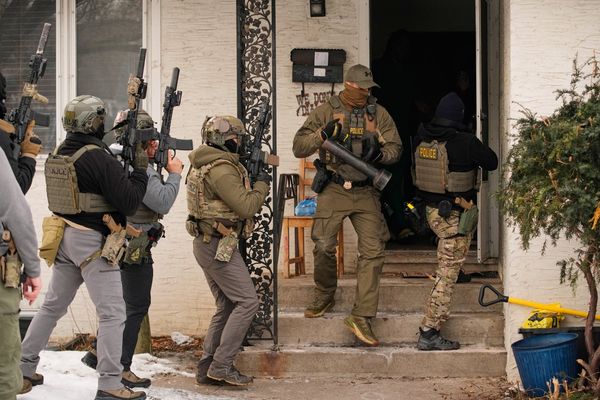The Supreme Court, in a ruling Friday, upheld a Texas law that required pornography websites to verify the age of their users, opening the door for states nationwide to place more restrictions on online content.
The 6-3 decision, with a majority opinion written by Justice Clarence Thomas, found that laws requiring age verification to access explicit online content do not overly burden the free speech rights of adults.
Thomas wrote that because the Texas law “simply requires proof of age to access content that is obscene to minors, it does not directly regulate the protected speech of adults.”
The challengers, a group of pornography websites and free speech advocates, had argued that requiring adults to provide proof of identification chilled their free speech rights, opening them up to identity theft and other problems.
Thomas wrote that the U.S. Court of Appeals for the 5th Circuit correctly upheld the law, which required websites hosting explicit content to verify the ages of their users or face civil penalties.
The state law, signed by Gov. Greg Abbott in 2023, requires pornography websites to verify the identity of their users through documentation such a government-issued ID, and imposes a $10,000 fine per violation or $250,000 fine if that involves a minor.
Justice Elena Kagan, in a dissent joined by Justices Sonia Sotomayor and Ketanji Brown Jackson, argued that the decision departs from precedents that said regulation of online content must follow the “least restrictive” means of keeping pornography from children, such as content filtering software.
Kagan wrote that the majority opinion opened the door for more widespread laws that restrict access to online content, even content that is protected by the First Amendment generally, in the name of protecting children.
“The State should be foreclosed from restricting adults’ access to protected speech if that is not in fact necessary,” she wrote.
Kagan argued that Texas’ law was similar to prior age-based restrictions on content the court has subjected to a more difficult test. She wrote that the majority adopted “special-for-the-occasion, difficult to decipher rules” to uphold their preferred result.
The decision could green-light further regulation of pornography online, both from states and Congress. Sen. Mike Lee, R-Utah, and more than 20 other members of Congress filed a brief in the case arguing that existing precedent had tied the hands of legislators at both the state and federal level who seek to combat the harms caused by children’s access to online pornography.
Lee himself has said that Congress should go further. He introduced a bill that would make it a federal crime to distribute any content deemed “obscene” across state lines, including over the internet.
In prior Supreme Court cases, such as the Ashcroft v. ACLU cases in 2002 and 2004, majorities on the court held that criminal penalties for posting explicit content online where children could view it violated the First Amendment.
The case is Free Speech Coalition et al. v. Paxton.
The post Supreme Court upholds Texas age-verification law for online porn appeared first on Roll Call.







